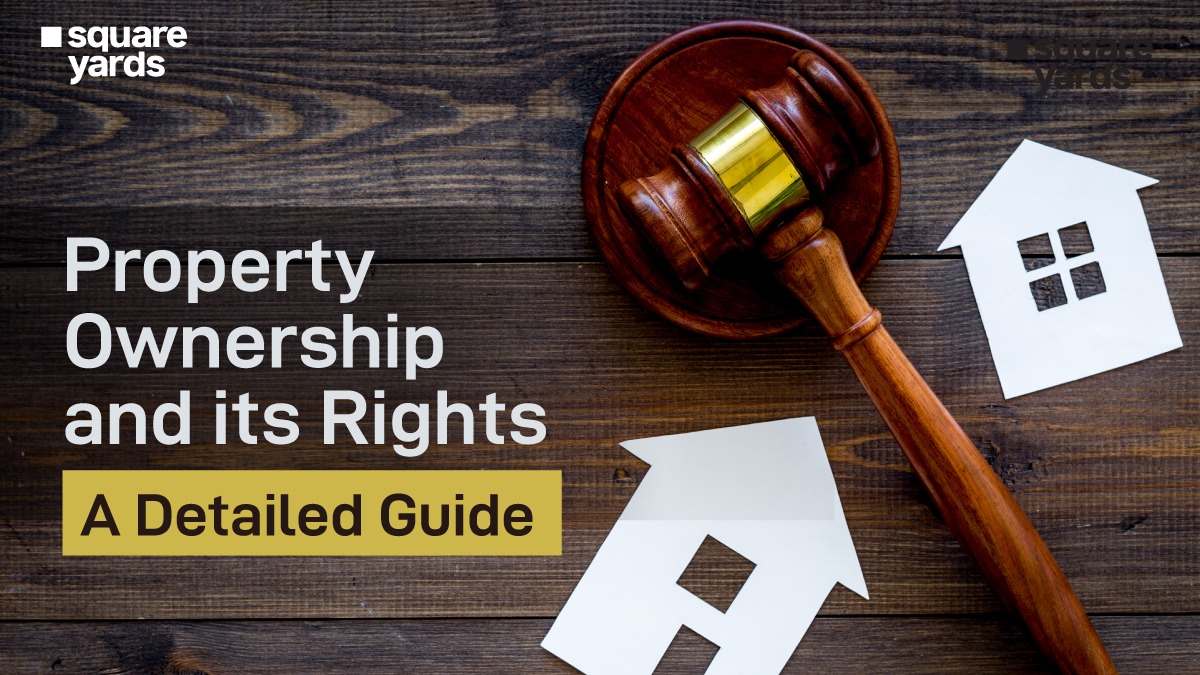Disputes over property titles are common, which leads the parties to wonder whether their claims are legitimate. What do you do if someone else stakes a claim to what you believe is rightly yours? How can you get through the tangled web of property rights when faced with such obstacles?
We’re all familiar with tenant protections, but homeowners have their privileges. Some legal protections and privileges are transferred to you as the real estate buyer. A homeowner’s legal rights include, among others, access, control, exclusion, and possession.
In this guide, adverse possession and what rights one holds if somebody else claims that property is explored in depth, whether it’s a house, a plot of land, or some other type of real estate.
Understanding Illegal Land Possession
When one party takes possession of another person’s property and gains title to it, it is illegal or adverse possession in legal terms. It may occur with or without the property owner’s knowledge, purposely or accidentally.
In circumstances of deliberate adverse possession, a trespasser or squatter—someone who unlawfully occupies another person’s property—knowingly enters that property to occupy it and reside there.
Illegal land possession may occur unintentionally in other situations. As an illustration, a homeowner could fence off their yard without realising they’ve crossed the property boundary and encroached on their neighbour’s space. The opposing possessor, the disseisor, may assert property ownership.
Legal Rights of Property Owner
Purchasing a home is expensive, so it seems sensible that you would feel possessive of your newest possession. However, a real estate newbie typically isn’t aware of the acquisition’s rights (and responsibilities). Here are a few of your most important rights as a property owner:
| Property Right | Explanation |
| Right of Possession | A property’s title is crucial for determining who legally owns it. You can obtain the title document immediately if you paid for the house in one single sum or paid off all outstanding debts to the firm that finances your home loan. However, if a house loan is pending, the lender can hold onto the title until all debts have been paid. The lender has the power to pursue legal action or even to have your property forfeited in the event of loan default. |
| Exclusion Rights | This privilege is the same as freedom of choice and privacy. The legal owner of the land has complete discretion over who may enter his home. You have every right to prevent anyone other than law enforcement personnel possessing a legal warrant from entering your home. |
| Control and Enjoyment Rights | Property or title owners have every right to utilise their property however they see fit. However, you must keep the restrictions provided by the authorities in mind. Furthermore, you are subject to the nation’s laws like everyone else. |
| Disposition/Selling Rights | Disposition describes the selling or giving away of the property’s ownership. The property owner is completely within his rights to sell, lease, or rent his property. |
| Title Insurance | When a property changes hands, title insurance shields the owner from shady or baseless accusations. It offers developers and homebuyers indemnification against damages or title flaws resulting from challenges by a third party. |
Is Adverse Possession Legal In India?
In India, according to the Adverse Possession Law, an individual who has lived on a piece of land without a title for 12 years with the owner’s consent can claim the ownership of the title of the land in question. The Article 65 of the Limitation Act explains the principle underlying the notion of adverse possession.
However, to claim adverse possession, the renter or the tenant has to meet the following requirements:
- Continuous use: The renter has to show that they have been in charge of the property for 12 years in the absence of the original owner. The ownership rights can slip to the tenant if the property is not dispersed within the specified period.
- Hostile occupation: The tenant can assert ownership by stating the title deed agreement is unlawful. If the owner does not take any action to regain the ownership rights within 12 years, the agreement is considered to be dissolved.
- Open and exclusive possession – The renter must provide proof that they have lived for at least 12 years to the third parties to gain ownership. It includes renovations, establishing a property line, and maintaining good relations with the neighbours.
- Actual possession: In this situation, the tenant should take action to reclaim the property as his own. It requires mention of instances in which the tenant performed jurisdiction over the land in their capacity as the owner.
Tips to Avoid Adverse Possession
Property owners should monitor the tenants to avoid illegal possession. Here are some tips for property owners to avoid adverse possession:
- Do not leave the property unattended; make frequent visits.
- It is best to change or replace the tenants timely to avoid such issues.
- Construct a boundary wall or a fence in case of a plot or land.
- Besides building a fence, protect your property by installing a no-trespass signboard.
- Keep an eye on your property without disturbing the tenant. Hire someone or give in charge to someone else in your absence to make regular visits and observe the tenant’s activities.
Conclusion
It’s crucial to be thoroughly aware of your rights and the legal procedures to follow when someone else asserts ownership of the property you feel is yours. Consulting a qualified attorney for advice and direction is essential, even if the precise processes could vary based on the jurisdiction and the property’s characteristics. You can negotiate ownership issues and safeguard your interests by presenting facts, considering potential solutions, and according to legal processes.
Remember that settling property disputes can be complicated. Therefore, speaking with legal professionals who can provide individualised advice based on your unique situation is always advisable.
FAQs
Is adverse possession legal in India?
Yes, Indian law recognises and governs adverse possession. The Limitation Act of 1963 governs adverse possession in India. A person, not the original property owner, can claim adverse possession if he has had the property for at least 12 years and the owner makes no formal effort to evict him.
What legal action can one take against illegal possession?
First, the owner should file a complaint to the Superintendent of Police where the property is located. One can file a personal complaint in court if the complaint goes unnoticed. File a police complaint and keep a copy of the FIR for future reference. Authorities will take action under Section 145; you could even seek relief under Sections 4 and 5 under Specific Relief Act.
In what situations can adverse possession not be reclaimed?
Here is the list of situations when adverse possession cannot be reclaimed:
- If there is no proof to justify the claim or in the absence of valid proof, the ownership rights cannot be claimed.
- A permissive possession cannot be transformed into adverse possession, especially if it is permissive from the beginning.
- When claiming ownership rights, providing intent to possess by demonstrating how the property is occupied is essential. The property cannot be reclaimed if there is a lack of purpose.
























